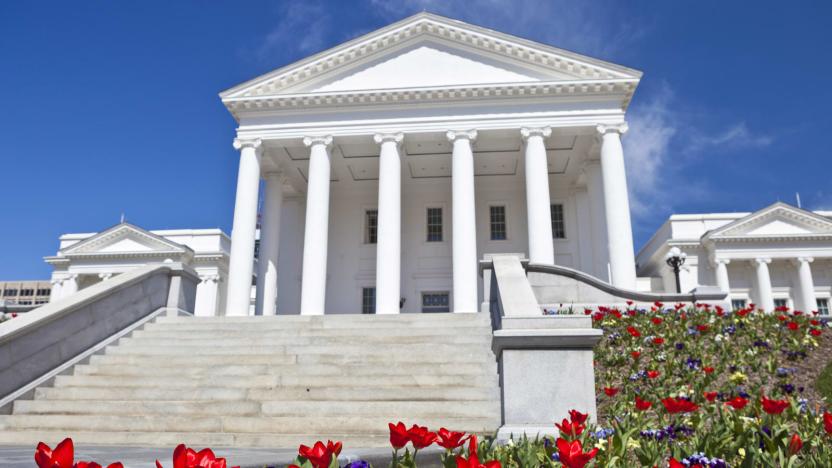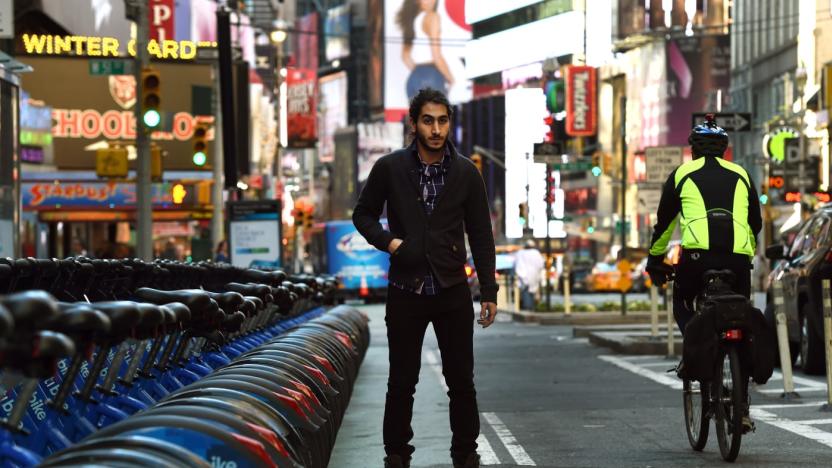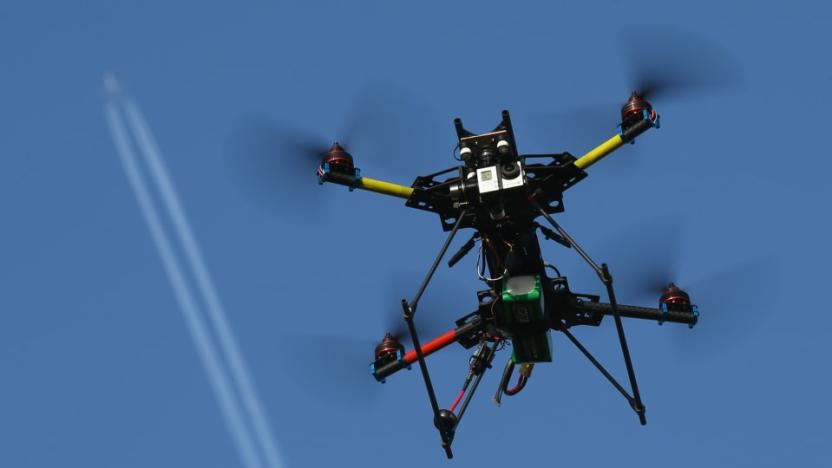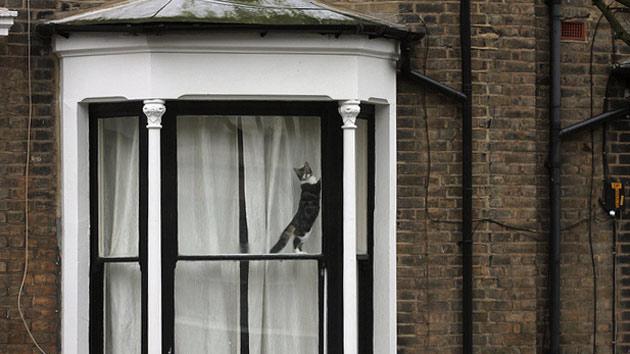legislation
Latest

Virginia bill would effectively ban city-run broadband
Now that the FCC can't prevent states from blocking municipal broadband, telecom-backed politicians are doing their best to shut down these government-run networks. Virginia House Republican Kathy Byron has put forward a bill that would make municipal internet virtually impossible. Towns couldn't offer internet service so long as there's at least one private provider offering 10Mbps downloads and 1Mbps uploads to 90 percent of customers in the area -- and that's pretty easy to find in Virginia. Those towns that do clear this hurdle would have to both conduct a "comprehensive" assessment and give private ISPs 6 months to come up with solutions that are potentially less expensive.

Michigan embraces our self-driving future
Michigan isn't just America's high five, historically it's the heart of the auto industry as well. And now the state looks to be preparing for the future. Today, Governor Rick Snyder has signed four bills into law regarding autonomous vehicle repair, research, driving networks and accident responsibility.

California approves unmanned self-driving car trials
Given the number of tech companies that call California home, it's no surprise the state has been quick with forward-thinking legislation to support the development of self-driving vehicles. And almost four years to the day since driverless trials on public streets were first approved, a new bill has been signed off by Governor Jerry Brown that permits autonomous car tests without a human passenger overseeing proceedings.

Anti-encryption bill changes would limit some effects on security
A Senate bill that would demand encryption backdoors may be on ice for now, but it's now poised to come back -- with a few limitations. Just Security claims to have obtained proposed changes to the bill that would scale back its requirements to placate critics of its effect on privacy and security. Some of them could make a meaningful difference, but there's a concern that this wouldn't change the underlying problems with the legislation.

EU court upholds new rules that ban e-cigarette advertising
E-cigarettes received one of their biggest endorsements to date last week, with the UK's Royal College of Physicians vouching for their safety and recommending smokers be encouraged to make the switch. Any celebrations within the vaping industry will have been short-lived, though, as yesterday the EU's Court of Justice cleared new legislation that puts e-cigarettes under similar regulatory pressures as your traditional cancer sticks. Many of the rules are simply to ensure product quality, but the biggest blow to manufacturers will undoubtedly be a broad ban on advertising and other promotional activity.

Quebec contemplates mandating home EV charging stations
The Quebec government announced on Friday that it is currently considering a new mandate that would require every new home built within the province -- as well as existing rentals -- be outfitted with a 240V charging station for electric vehicles. The government has already started an impact study, the results of which are expected to be published by the start of this summer.

Uber shuts down its app in Paris to support driver protest
Uber will suspend its service in Paris today between 11 AM and 3 PM in support of a driver protest against proposed legislation from the French government. So far, the company has distanced itself from the conflict, but said it will shut down its app in support of its Paris drivers, the first time it has ever done so. The issue, of course, is about private chauffeur services and apps like Uber versus traditional taxis. The government banned the UberPop service last year, so there are no longer concerns over non-professional drivers. However, it now wants to stop a group of minicab chauffeurs from using Uber and other apps.

Hawaii AG declares that daily fantasy is indeed gambling
Hawaii Attorney General Doug Chin issued an official opinion on Thursday arguing that daily fantasy sports, like DraftKings and Fanduel, constitute gambling under Hawaiian law. "Gambling generally occurs under Hawaii law when a person stakes or risks something of value upon a game of chance or upon any future contingent event not under the person's control," Chin wrote, "The technology may have changed, but the vice has not."

Politicians are trying to legalize 'hoverboards' in New York
Plenty of New Yorkers will have woken up on Christmas morning and discovered a motorized two-wheeler, otherwise known as a "hoverboard," underneath their festive tree. The electric curiosities are currently illegal to ride in the city, but a small group of politicians are fighting to lift the ban with an amended set of traffic laws. New York State Senator Jose Peralta held a news conference yesterday with Assembleyman David Weprin and council members Andy King and Ydanis Rodriguez; they're pushing forward two bills which, if passed by the New York Senate and Assembly, could make the devices legal on public roads and sidewalks.

Budget bill heads to President Obama's desk with CISA intact
Earlier today, the US House of Representatives passed a 2,000-page omnibus budget bill that contains the entirety of the controversial Cybersecurity Information Sharing Act. Just moments ago, the Senate passed it too. Now the bill is on its way to President Barack Obama's desk, where he has the option to veto it... except he almost certainly won't. The gargantuan document lays out a $1.15 trillion spending plan that has received solid (if not unanimous) support from both sides of the aisle and should prevent a government shutdown like the one we saw in 2013. But at what cost?

California unbans the use of electric skateboards in bike lanes
In 1977, California banned the use of powered skateboards on state streets; largely because the only reliable source of power back then was noisy two stroke gas engines. However with the development of larger-capacity and quieter lithium-based battery power, skateboards have become about as noisy and polluting as bicycles. That's why, last Sunday, California Governor Jerry Brown signed Assembly Bill 604, which once again makes riding powered skateboards in the bike lane legal.

California governor vetoes bill banning drones over private property
Legislation that would have restricted drone pilots in California has been struck down by governor Jerry Brown. The bill, spearheaded by state senator Hannah-Beth Jackson, would have banned quadcopters from flying below 350 feet around private properties -- at least, not without the permission of the building's owner, anyway. It passed both the state Assembly and state Senate in August, prompting opposition from GoPro and advocacy groups with ties to Amazon and Google. Brown has now dismissed the bill, however, because of its potential to "expose the occasional hobbyist and FAA-approved commercial user to burdensome litigation." He admitted the bill was "well-intentioned," but stressed that all parties need to discuss the issue further "before we go down that path." Jackson, meanwhile, has gracefully accepted defeat, meaning Senate Bill 142 is shelved for now.

Georgia sues man for posting annotated state laws online
You might think that legislation should be freely accessible as a matter of course, but the state of Georgia begs to differ. It's suing Public.Resource.Org owner Carl Malamud for allegedly violating copyright by publishing the annotated versions of Georgia's laws (that is, the ones that truly reflect the legislative process) online. While it's fine to publish the basic, note-free laws, the state argues that you should pay Lexis Nexis up to $378 to read the context-laden versions. The state claims that it would have to dip into tax dollars if it wanted to make this information free, and citizens would supposedly be deprived of "valuable analysis and guidance" if it wasn't published at all.

California bill allows firefighters to ground pesky drones
As wildfires scorched sections of California Interstate I-15 last week, firefighters found themselves hamstrung and unable to deliver aerial water coverage for nearly 20 minutes because a couple of schmucks were flying their quadcopters directly overhead. In response, Assemblyman Mike Gatto (D-Glendale) and Senator Ted Gaines (R-El Dorado) have introduced Senate Bill 168. The bill would grant "immunity to any emergency responder who damages an unmanned aircraft in the course of firefighting, air ambulance, or search-and-rescue operations." The bill will also levy stiff fines and potentially even jail time for people whose UAVs inhibit an emergency response.

Revenge porn is now a specific crime in the UK
Posting revenge porn has always been a bad idea, but the UK is about to make examples of those heartless enough to share nude photos of their exes. As of Monday, the country's Criminal Justice and Court Act treats revenge porn as a specific crime. Publicize racy private images with the "intent to cause distress" and you'll face up to two years in prison. While the law could technically punish this behavior before, the Act is meant to discourage those who otherwise wouldn't get the hint.

Government proposal aims to legalise Airbnb rentals in London
Hop onto a site like Airbnb or One Fine Stay and you'll find plenty of houses, flats and rooms available in London for short-term rental. While these are perfect for visitors after a more homely (and sometimes cheaper) stay in the capital, those wanting to squeeze a few quid out of their dormant spaces aren't exactly doing things by the book. A law, which many see as outdated, essentially prevents Londoners from letting their pads out for less than three months at a time (without appropriate planning permission), and some of the city's boroughs have tried taking legal action against wannabe landlords on this basis. This is especially true in upmarket areas like Westminster, the City of London, Chelsea and Kensington, where local councils argue it could foster housing shortages and turn residential areas into nuisance-ridden, decentralized hotels. So, in an effort to curb patchy implementation of the law, and to support Londoners wanting to tap into the "sharing economy," the government has announced a proposal that would make short-term rentals through sites like Airbnb legal; though unsurprisingly, it's already drawing flak.

New York attorney general fights rule that curbs services like Uber
New York City isn't always kind to ridesharing services like Lyft and Uber, but those companies have just gained an important ally. BuzzFeed News has learned that state Attorney General Eric Schneiderman recently sent a letter to NYC's Taxi and Limousine Commission (TLC) opposing rules that would limit firms to dispatching exclusively affiliated drivers unless they strike deals with rivals. To Schneiderman, that creates "serious antitrust issues." Companies would frequently have to collude with each other to grow, and the rule would favor well-financed outlets that can lure drivers away, such as Uber. Instead, the official suggests an approach where transporters can affiliate with any company that shares the same worker's compensation system.

Posting revenge porn could soon become a serious criminal offence
The posting of 'revenge porn' may become unequivocally illegal in England and Wales soon, after the House of Lords agreed yesterday the law should be amended to specifically include the practice. Currently, anyone that shares explicit images to humiliate a former partner can be prosecuted under sex offense laws -- something the Crown Prosecution Service was keen to highlight in new guidance released a few weeks ago. To deal with the growing problem more directly, however, the Lords' amendment would consider the sharing of such images a serious criminal offense in its own right, carrying a maximum prison sentence of two years. Should MPs in the House of Commons approve the amendment, perpetrators would be more easily punishable, and victims would have stronger grounds to demand the removal of any published images. Clarifying the law with regards to revenge porn isn't the only crackdown on bad internet behaviour currently under consideration, as the UK Justice Secretary recently called for the maximum prison sentence for serious trolls to be increased from six months to two years.

California will fine companies that try to silence disgruntled customers
Remember the New York hotel that imposed $500 fines for any guest who wrote disparaging reviews on sites like Yelp and TripAdvisor? The state of California does, and has decided that it wants to stop the practice of any business, including hotels and restaurants inserting "non-disparagement" clauses into their terms of business. Under the law, any outlet trying to enforce financial penalties onto upset keyboard warriors would be met with a $2,500 slap. Subsequent violations would set them back $5,000, and there's a $10,000 bonus non-prize if a company is found to be recklessly violating the rules. Let's hope that the trend carries over to other states, but also that some canny legislator widens the definition to cover gadget reviews for, er, no specific reason.

Cellphone unlocking bill passes through the House, heads to the Oval Office
Well, it seems like the US cellphone unlocking bill didn't get held up legislation after all: the Unlocking Consumer Choice and Wireless Competition Act just passed through the House of Representatives with unanimous support. The measure reverses the 2012 decision that made phone unlocking a violation of copyright law and frees consumers from the mercy of their cellular provider, but it's not law yet -- the bill still needs the signature of President Obama. Still, that's almost a formality: the "bulk unlock" measure portion of the legislation that caused waves in the Senate has since been removed from the bill. Its text is clean and simple: unlocks can be "initiated by the owner" of any device or "by another person at the direction of the owner" with the express purpose of connecting to the wireless network of their choice. Sounds good here. [Image credit: Mondo3, Flickr]








